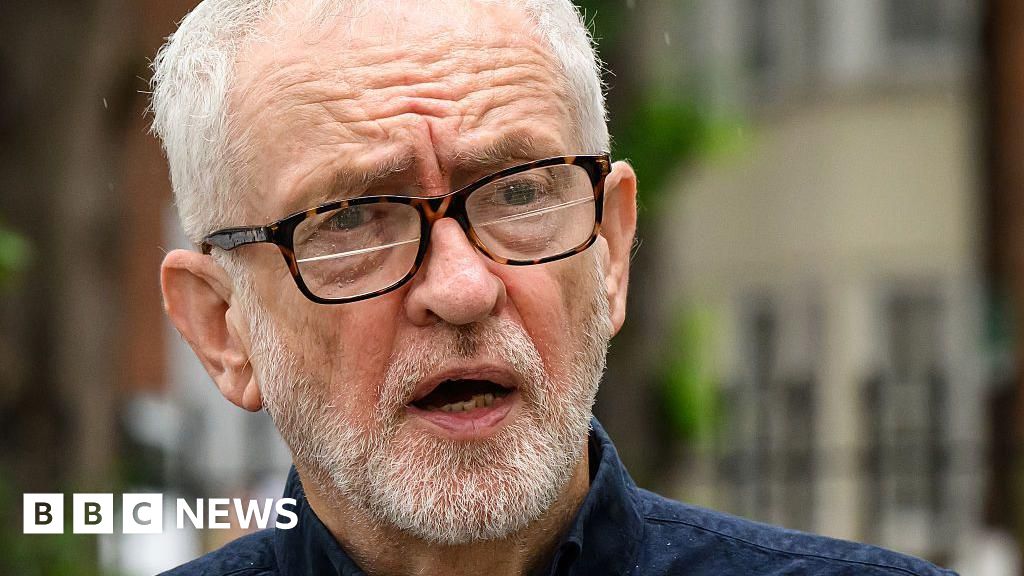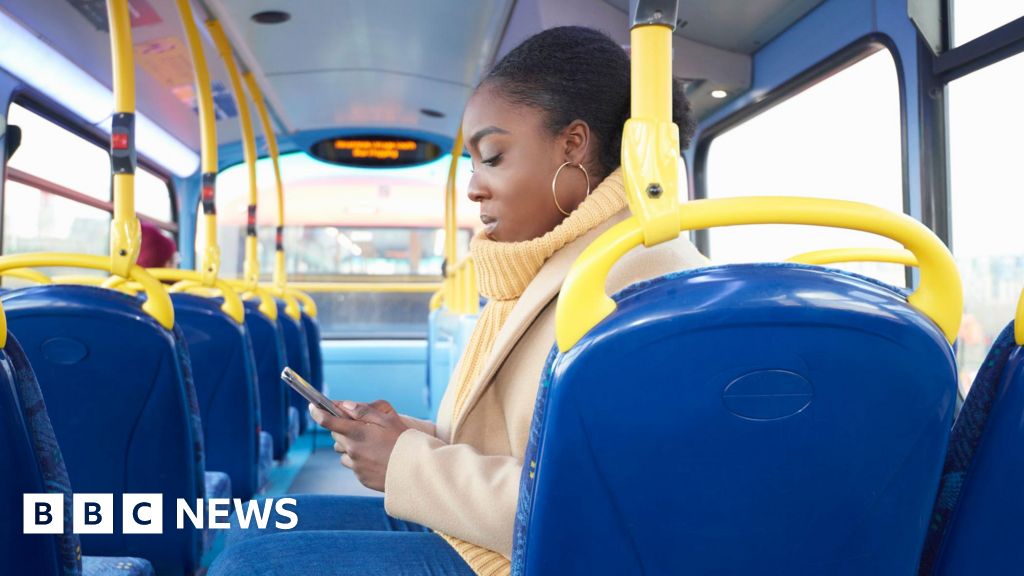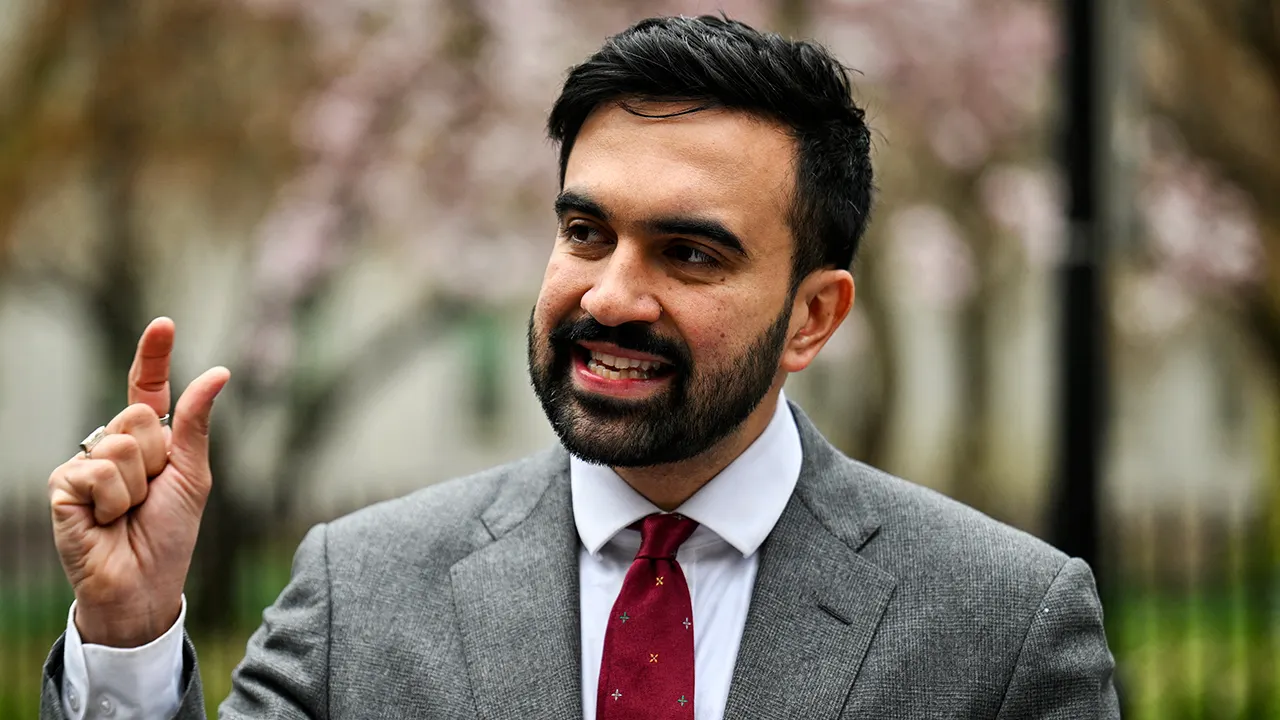Political reporter
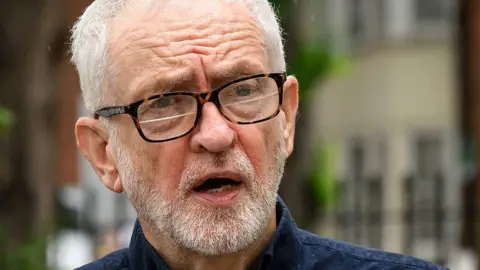 Getty Images
Getty ImagesFormer Labour leader Jeremy Corbyn has confirmed he is launching a new political party, promising to “build a democratic movement that can take on the rich and powerful”.
It doesn’t have a name yet but the MP for Islington North says the plan is for the group to fight May’s local elections ahead of the next general election, which is likely to take place in four years’ time.
The new venture has the potential to shake-up the political landscape, with Labour and the Greens appearing to be the most at risk of losing votes.
Polling of around 2,000 Britons by More In Common last month – on whether they would vote for a hypothetical Corbyn-led party – suggested it could pick up 10% of the vote.
This would potentially take three points off Labour’s vote share and extend Reform UK’s lead in the polls by the same margin.
The pollster’s UK director, Luke Tryl, says that if this plays out at a general election Labour risks losing seats outright to Corbyn’s party, while a splintering of the left-wing vote could also allow Reform UK or the Conservatives to make gains.
“In an era of very fragmented politics, small shares could make the difference across the board, and it is totally conceivable that the performance of this left-wing party could be the difference between a Labour-led government and a Nigel Farage Reform-led government on current polling,” adds Mr Tryl.
Corbyn’s party could gain support in parts of the country where pro-Gaza independents have performed strongly such as Birmingham, parts of east and north London and north-west England.
More In Common’s research suggests a Corbyn-led party would be most popular with those aged under 26 so inner-city student areas could also be key targets.
Many of these urban areas are holding local elections in May, which will mark the first real test for the new party.
However, polling suggests the Green Party – where many disgruntled former Labour voters have already turned – stands to lose the most support from a Corbyn-led party.
The Greens were second to Labour in 40 constituencies at last year’s general election but an insurgent left-wing party could eat into their support.
Much depends on whether the Greens form electoral pacts with the new party, with both sides agreeing to stand down in seats where the other has a stronger chance of winning.
The four pro-Gaza MPs who formed an independent alliance with Corbyn after the general election are expected to make up the core of the new party, along with former Labour MP Zarah Sultana.
But how could they work with the Greens?
Corbyn has suggested he will cooperate with the Greens but whether they will agree a formal deal remains to be seen.
James Schneider, a close ally of Corbyn who is involved in the new group, tells the BBC it would make “perfect sense for our new party to have some form of pact with the Greens”.
Green Party leadership candidate Zack Polanski has also said he will “work with anyone who wants to take on Reform and this government”.
However, his rival, Green MP Adrian Ramsay, warned his party must not become “a Jeremy Corbyn support act” and maintain its “distinct” identity and broad appeal beyond the traditional left.
Rob Ford, a professor of political science at the University of Manchester, says a Corbyn-led party is a big threat to the Greens.
“Corbyn has a level of name recognition, a level of celebrity, that no one in the Green Party can possibly match,” he tells BBC Radio 4’s PM programme.
“Now, they have one big advantage which is that they have a core issue, the environment, which is one that Corbyn doesn’t necessarily seem particularly interested in.
“So there is a world in which they could divide up the pie, so to speak, but they’re going to need to think hard about that or they risk being pushed aside.”
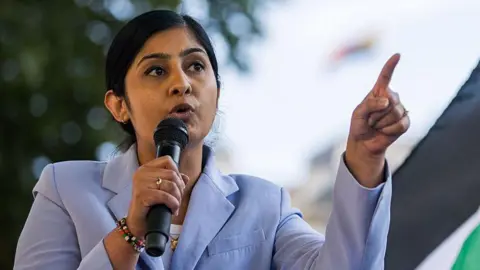 Getty Images
Getty ImagesAnother poll of more than 2,500 Britons by YouGov earlier this month found that while 18% say they are open to voting for a new left-wing party led by Corbyn, just 9% of these would not consider voting for any of the five existing significant national parties.
Illustrating the fractious and unpredictable state of politics, 11% of this group were also open to voting for Reform UK.
A lot could change in the four years there is likely to be before the next general election.
Luke Tryl argues that if Labour presents that election as a choice between Sir Keir Starmer and Reform UK’s Nigel Farage as prime minister, many on the left may choose to vote tactically.
In this scenario, voters who are sympathetic to Corbyn’s party could hold their nose and back Labour to stop a Reform candidate winning in their area.
It has also been a chaotic start for the party, with confusion over the name and who will lead it, after Sultana appeared to jump the gun by announcing her intention to form a new party with Corbyn earlier this month.
Labour sources have dismissed their former leader’s latest venture, saying “the electorate has twice given their verdict on a Jeremy Corbyn-led party” at the 2017 and 2019 elections.
And cabinet minister Peter Kyle went on the attack on Times Radio, accusing Corbyn of “posturing” and of not being “a serious politician”.
Mr Schneider argues the impact of the new party will not be limited by how many MPs it manages to secure.
It claims more than 200,000 people have already signed up to get involved in less than 24 hours.
There’s no guarantee all of them will go on to join the party but it suggests some enthusiasm for the idea amongst sections of the public.
“We’re going to be having a huge outside influence on the political debate in this country,” Mr Schneider says.
“Of course the long-term goal is to win elections and enter office and be really in power.
“But in order to have real sustainable power you need to have people coming with you and have your foundations in the society you want to be building up.”




